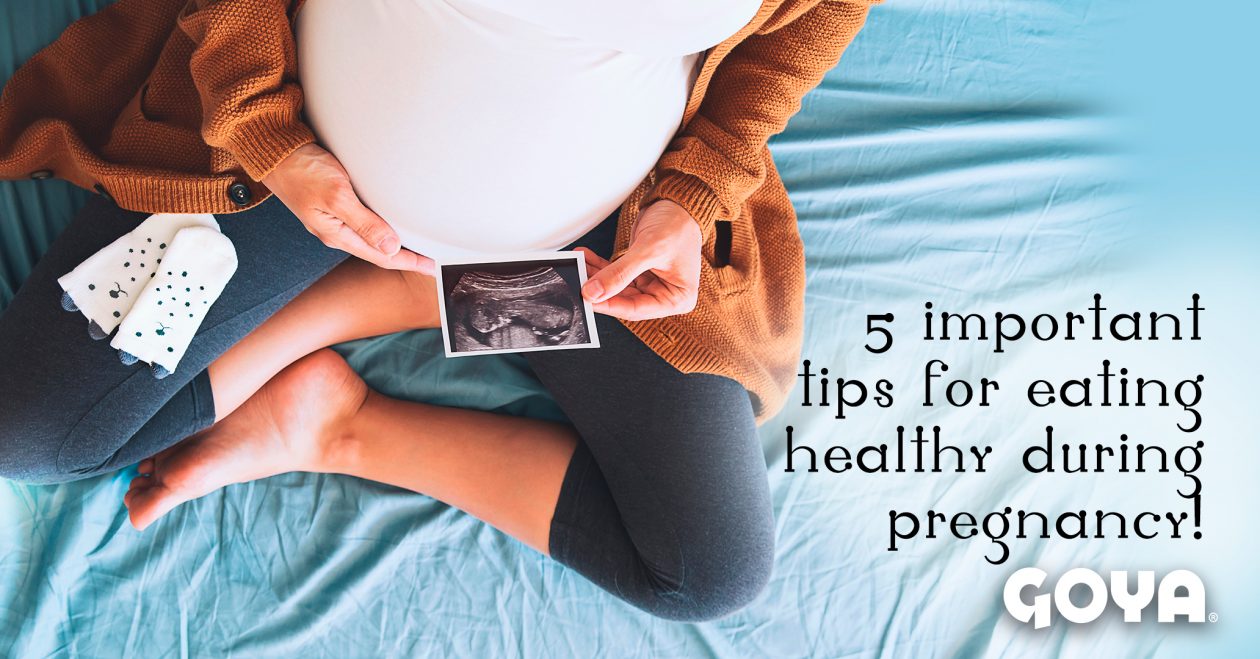
5 tips for eating healthy during pregnancy!
During pregnancy, it is very important for the mother to be to pay special attention to her nutrition, as it is a period with nutritional needs which must be satisfied through a balanced diet.
A full and varied diet during pregnancy must have foods which provide quality nutrients.
Today we want to share these 5 key recommendations for a healthy, balanced diet during pregnancy.
1. Quality food.
You don’t have to eat much more, but instead eat better. The recommended calorie intake during pregnancy is around 2,000 calories per day. With this as a guide, the Mediterranean diet is a point of reference in healthy eating.
2. Eat 5 meals per day: breakfast, midmorning, lunch, afternoon snack and dinner.
It is better to consume small portions several times per day to facilitate digestion and combat the bloating and heartburn typical in pregnancy.
3. Hydration.
Consuming water during pregnancy facilitates digestion, the elimination of toxins and helps to alleviate discomfort during pregnancy, such as headaches, constipation and fluid retention. It is recommended to drink 6 to 8 glasses of water per day.
4. Safe foods. Eat foods which are safe for you and your baby:
- Prioritize foods of plant origin, fruits and vegetables.
These are essential for providing vitamins and minerals, especially leafy greens (lettuce, spinach, Swiss chard) and fruits such as oranges, some of which are rich in folic acid, other in vitamin C, contributing to better iron absorption.
- Eat meat, fish (3 times per week), dairy.
legumes and nuts as they are rich in iron and calcium, as well as essential fatty acids in fish, among the foods which are richest in omega 3. Shellfish such as cockles and clams have a high iron and iodine content, a mineral necessary in pregnancy.
- Don’t forget cereals, legumes and carbohydrates, due to their fiber and energy content, which must form part of the daily diet.
- Reduce consumption of sweets, soft drinks, candies, pastries and trans fats.
Their consumption must be occasional. Also reduce consumption of coffee and tea and eliminate alcohol consumption.
5. Way of cooking and condiments.
Control the amount of salt used in dishes. When cooking, grilling is one of the healthiest ways to prepare food, as nutritional values are preserved. Also remember that for seasoning dishes, olive oil is one of the best options: it contains antioxidants such as oleic acid, which contributes to keeping cholesterol levels under control and to the growth of bones.
A healthy, balanced diet must not be limited to during pregnancy. A healthy diet before pregnancy helps to prepare the woman’s body to manage the proper development of the baby. After pregnancy and during the breastfeeding period, the physiological demands of the woman also increase, and therefore a healthy, balanced diet, rich in nutrients is essential for offering the baby the best nutrition through breast milk.








